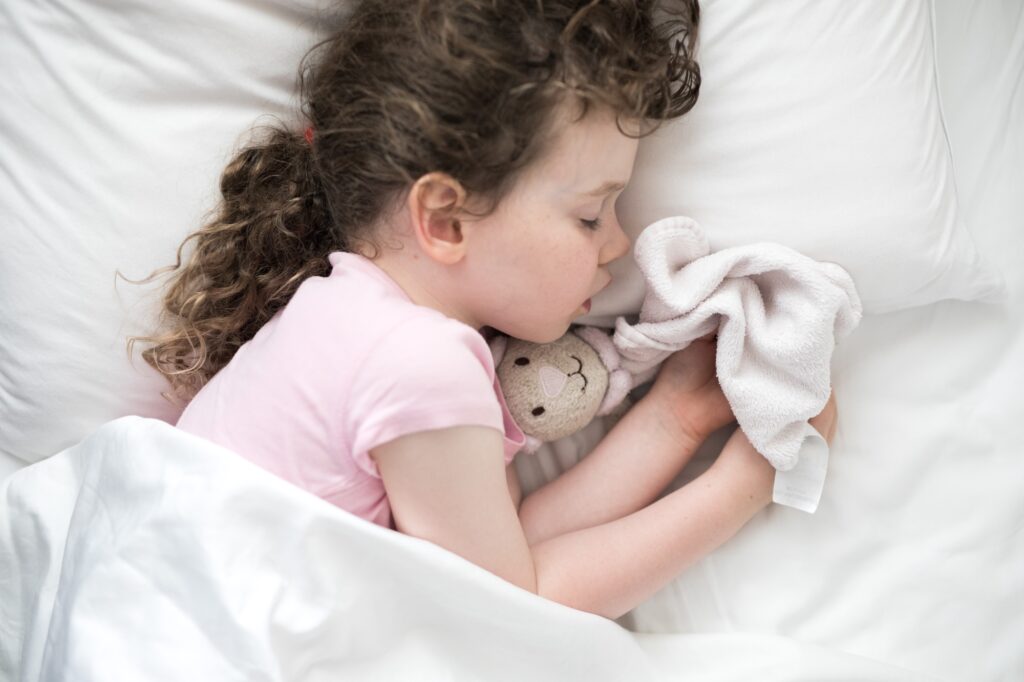As parents, we often look at sleep through the lens of bedtime routines, naps, and behavioral habits.
But what if your child’s sleep issues — or sudden changes in mood — are coming from something deeper?
Iron deficiency is one of the most common nutritional issues in children worldwide, and it’s frequently overlooked when it comes to understanding disrupted sleep and emotional regulation.
In this article, we’ll explore the connection between iron levels, sleep quality, and mood — and when it might be time to investigate further.
Why Iron Matters for Children
Iron is essential for healthy brain development. It supports the transport of oxygen in the blood, the production of energy, and the regulation of neurotransmitters like dopamine and serotonin — which directly influence mood, motivation, and sleep cycles.
When iron levels are low, children may not show immediate or obvious physical symptoms. Instead, the signs often appear in behavior, attention, and sleep.
Iron & Sleep: What’s the Connection?
Low iron levels — especially low ferritin (iron storage) — can lead to sleep disturbances in children for several reasons:
1. Restless Sleep and Difficulty Staying Asleep
Iron plays a role in regulating dopamine, which is essential for the brain’s sleep-wake cycles. When dopamine function is disrupted, children may experience:
- Fragmented sleep
- Trouble falling back asleep after waking
- Restlessness during sleep (moving frequently, tossing and turning)
2. Restless Legs Syndrome (RLS) and Periodic Limb Movement
Children with low iron may develop symptoms of Restless Legs Syndrome, a neurological condition that creates an uncontrollable urge to move the legs, especially at night.
They may not be able to describe it clearly but may say:
- “My legs feel funny”
- “I can’t stop moving”
- “I don’t want to go to bed” (linked to the discomfort they can’t express)
These sensations often disrupt both the ability to fall asleep and sleep continuity.
3. Shorter Total Sleep Time
Low iron can also reduce slow-wave sleep (deep sleep), which is essential for growth, memory consolidation, and physical recovery.

Iron & Mood: Behavioral Clues to Watch
Even in the absence of anemia, low iron storage can affect emotional regulation and behaviour. Some common signs include:
- Increased irritability or emotional outbursts
- Difficulty concentrating or paying attention
- Low motivation or decreased interest in activities
- Fatigue during the day, despite “enough” hours of sleep
- Sensory sensitivity or fidgety behavior
Because these behaviors often resemble symptoms of ADHD or emotional dysregulation, the underlying nutritional component may be missed.
🩺 When to Investigate Iron Levels
If your child is:
- Sleeping poorly despite good sleep hygiene
- Displaying mood changes, restlessness, or difficulty settling
- Lacking energy or seeming unusually pale
…it may be worth speaking with your pediatrician about checking ferritin levels, not just hemoglobin. Ferritin reflects the body’s iron reserves and can be low even when full-blown anemia isn’t present.
Optimal ferritin levels for healthy sleep and neurological function are often considered above 50–75 ng/mL in children — even though the medical reference range starts much lower.
Always work with your pediatrician or a paediatric nutritionist to interpret results and develop a supplementation plan if needed.

What You Can Do
If iron levels are found to be low, steps may include:
- Iron-rich foods: red meat, lentils, leafy greens, egg yolk
- Iron supplementation (only under medical supervision)
- Supporting absorption: pair iron with vitamin C and avoid dairy/calcium around iron intake
- Monitoring sleep patterns during and after correction
Within a few weeks of improving iron stores, many families see: ✅ More consolidated sleep
✅ Reduced night wakings
✅ Improved mood and focus
✅ Better daytime energy
Sleep is not just a behavioral or emotional process — it’s a biological one.
If your child is struggling with sleep or mood and no amount of routine seems to help, don’t overlook the role of nutrition.
Low iron — especially low ferritin — is a silent disruptor. But once addressed, it can bring powerful improvements in your child’s wellbeing.
📩 If you’re unsure whether your child’s sleep challenges are routine-based or have deeper roots, I’m here to help.
Book a free 30-minute sleep consultation, and let’s take a closer look — together.https://beesymum.com/contact/







